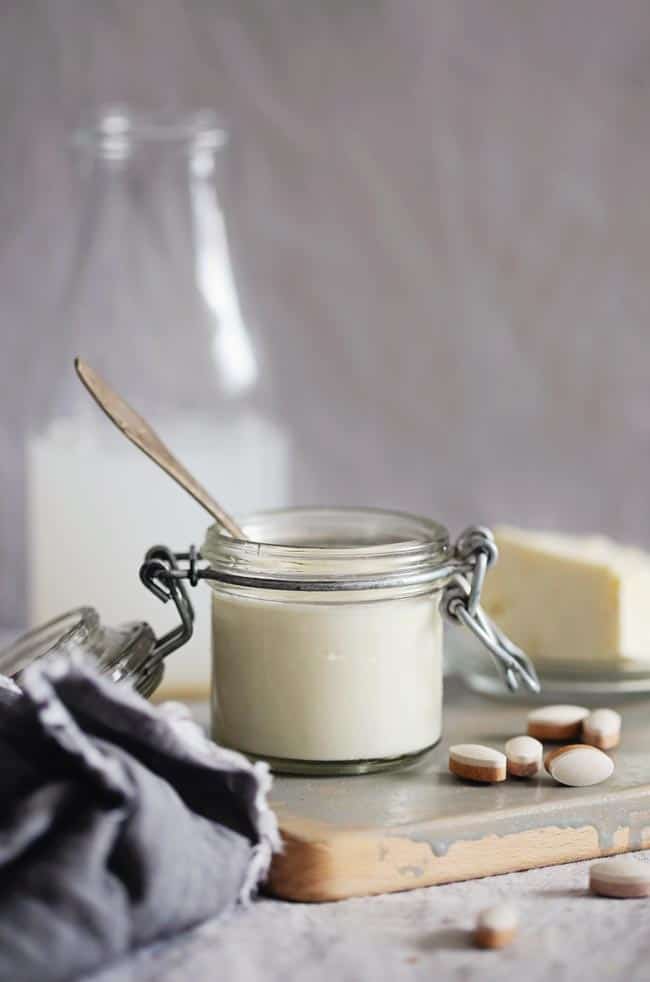It’s a total mystery to me why gut health and probiotics did not become a “thing” until a few years ago. I mean, come on: 95% of serotonin—the neurotransmitter considered responsible for happiness and wellbeing—is produced in the gut, and what’s more, 80% of your immune system is located in the same place. Hippocrates, considered the father of modern medicine, said “all disease begins in the gut.” So why did it take Jamie Lee Curtis hawking yogurt for mainstream medicine to hop on the gut-health bandwagon?
How to get a healthy gut

The gut is populated by both “good” and “bad” bacteria, also known as gut flora. The idea is to raise the ratio of healthy to harmful bacteria. Certain foods can be used to promote gut health; likewise there are foods that inflame or otherwise irritate our guts. Adding probiotics to your diet, in the form of cultured foods and/or supplements, will help you increase the good bacteria in your gut, promoting good digestion. Good digestion is vital for your health by optimizing the assimilation of nutrients. If you have IBS, constipation, acid reflux, or any digestive distress or hormonal imbalance, then adding probiotics is a top priority.
What causes the gut to get out of balance?
- A diet high in sugar
- A diet high in processed foods
- A diet low in minerals and healthy fats
- Years of taking antibiotics or birth control
10 natural probiotic foods for gut health
1. Cultured vegetables
Cultured, or fermented, veggies support weight loss, reduce cravings and help avoid constipation. Start with 2 tablespoons of cultured vegetables with each meal and slowly increasing by 1 tablespoon until you reach ¼ cup at each meal. Get the recipe here.
2. Lacto-Fermented Lemonade
More palatable (and easier to make) than kombucha, this refreshing homemade drink is also cheap to produce at home.
3. Coconut water kefir
Feel free to make homemade, or opt for store-bought, like Inner Eco, which contains an average of 100 billion active probiotic cultures per serving.
4. Yogurt
Your reaction to dairy may vary (some digest it fine, some find dairy worsens digestion, bloating, headaches, acne or other issues. If you opt for non-dairy, look for yogurts made from coconut milk, almond or any unsweetened and dairy-free milk. Add it to smoothies (like a lovely lavender-berry one) for a creamy dessert or breakfast.
5. Raw Apple Cider Vinegar
Not only is this wonder ingredient great for salad dressing, skincare and boosting the immune system (as well as many other household uses), it’s a natural probiotic. Take a tablespoon or two per day and see how you feel.
6. Kombucha
You may want to avoid kombucha if candida is present, as sugar is used in its fermentation process. Make your own, or opt for store-bought options with lower sugar content, if this is a concern.
7. High-quality probiotic supplements
These can be purchased on Amazon, Vitacost, or at your local health food store. We suggest choosing a probiotic with at least 15-50 billion colony-forming units (CFUs). Probiotic shake mixes like Renew Life can also be used to make delicious healthy-gut smoothies.
8. Miso and Tempeh
Fermented soybeans not only provide probiotics—they can make soy products easier to digest for those who have trouble. Try Oh My Veggies’ Sweet and Sour Tempeh for starters.
9. Fermented Condiments
Infuse your ketchup, mustard, hot sauce and more with probiotics by making homemade fermented condiments.
10. Kimchi and Sauerkraut
Both these fermented veggie dishes are traditional probiotic-packed staples of their respective cuisines. Keep a stash of homemade kimchi or sauerkraut in the fridge, and snack away.
Potential side effects of probiotics
Many people will feel much better (and more regular!) after introducing probiotics to their daily diet. If you add probiotics to your diet and find you experience “die-off” symptoms such as headaches, loose stools, or belly bloat from the bad bacteria dying off, reduce the amount of cultured foods you’re consuming, or take a break from probiotics before slowly reintroducing.
If you experience digestive upset (bloating, loose stools, or acid reflux), try more puréed foods, soups, smoothies, and warm foods. Try chewing on ginger or taking digestive enzymes—which help to break down fats, proteins, and carbohydrates—prior to eating salad or other raw vegetables. You can also drink lemon water (skip the cayenne if your stomach is upset) three times a day—20 minutes before each meal—to enhance the natural enzymes in your body and stimulate digestion.
Original article and pictures take helloglow.co site
Комментариев нет:
Отправить комментарий